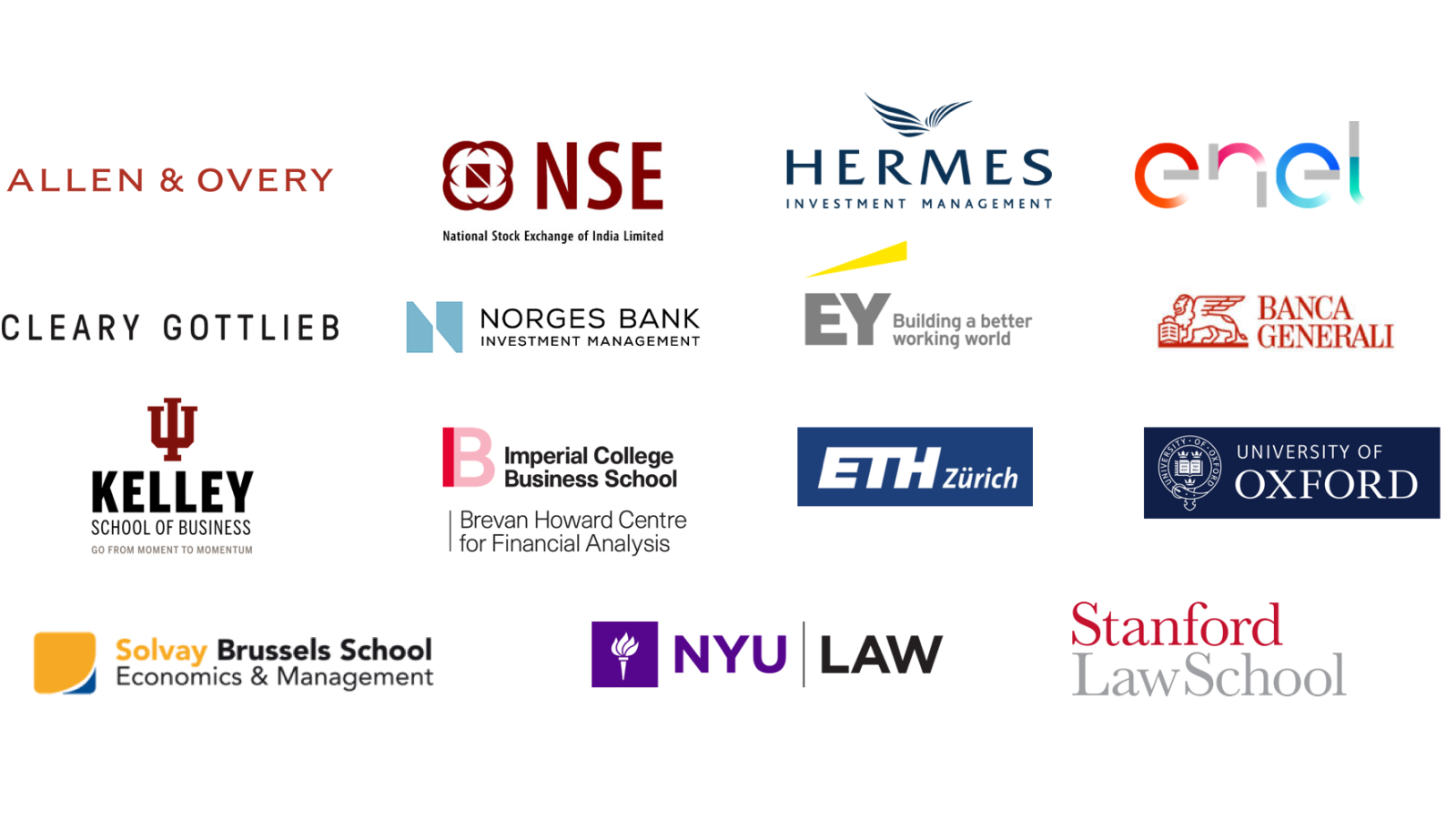ECGI welcomes 15 new Institutional Members

13 August 2018 – Brussels. The European Corporate Governance Institute (ECGI) is delighted to welcome fifteen new institutional members to its network in the past twelve months. As a non-profit academic network supporting independent research around the world, ECGI is grateful to its non-academic partners for recognising the importance of evidence-based research in shaping the debate on corporate governance topics. Their support of the ECGI network allows for the continued dissemination of research for the public good, while their engagement facilitates a mutual dialogue and greater impact on a global scale.
In the past twelve months, ECGI has welcomed the following new institutional members to the network: Allen & Overy LLP; The National Stock Exchange of India (NSE); Enel; Hermes Investment Management; Cleary Gottlieb Steen & Hamilton LLP; Norges Bank Investment Management; EY; and Banca Generali.
As a further mark of encouragement for the institute, a number of leading academic institutions also signed up as institutional members of ECGI. Their support stimulates collaboration across the globe while providing financial support for the dissemination of independent research. The new academic institutional members of ECGI are: Solvay Brussels Business School; The Brevan Howard Centre for Financial Analysis, Imperial College, London; ETH Zurich; University of Oxford; Kelley Business School, Indiana; NYU Law School; and Stanford Law School.
In addition to joining the network, the new members have engaged with ECGI on collaborative events in London, Brussels, New York and Mumbai. These events have proved highly beneficial, not only for the participants, but also to ECGI members, who receive access to the materials and reports produced. ECGI is unique in identifying the leading academics in corporate governance and sharing their research globally. The many topics that are included under the broad field of corporate governance include, among others:
Activism Bankruptcy Boards Company Law Competition Contracts Capital Diversity
| Foreign Investment Labour Listings M&A Management Ownership Private Equity Regulation
| Related Party Transactions Remuneration Responsibility Reporting Risk Shares and voting Shareholder Rights Shareholder Value
| Short-termism Stakeholders Stewardship Sustainability Tax Takeovers Technology Tunneling
|
Speaking about the new institutional memberships, Prof. Marco Becht (Executive Director, ECGI) said:
“It is most encouraging to have such high quality members join the ECGI network and contribute to the development of the institution. The direct benefit of independent research is not something that can be easily evaluated in investment terms, which means that the vision to support such a cause is made all the more meaningful.”
Click here to learn more about institutional membership of ECGI
Click here to view all ECGI institutional members
Contact:
Elaine McPartlan Head of Conferences, Membership & Administration European Corporate Governance Institute (ECGI) +32 2 550 2340
|
Professor Marco Becht Executive Director European Corporate Governance Institute (ECGI) +32478406156
|
About the European Corporate Governance Institute (ECGI)
The ECGI is an international scientific non-profit association which provides a forum for debate and dialogue focusing on major corporate governance issues and thereby promoting best practice. It is the home for all those with an interest in corporate governance offering membership categories for academics, practitioners, patrons and institutions.
Its primary role is to undertake, commission and disseminate research on corporate governance. Based upon impartial and objective research and the collective knowledge and wisdom of its members, it can advise on the formulation of corporate governance policy and development of best practice. In seeking to achieve the aim of improving corporate governance, ECGI acts as a focal point for academics working on corporate governance in Europe and elsewhere, encouraging the interaction between the different disciplines, such as economics, law, finance and management.